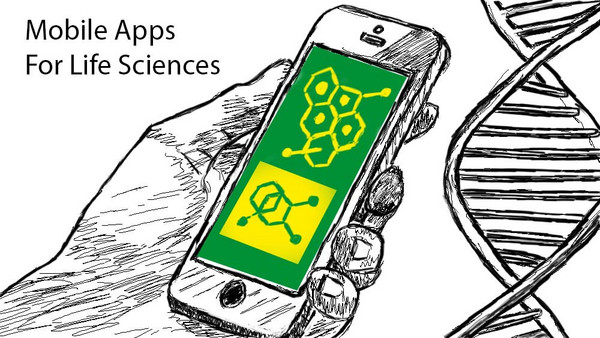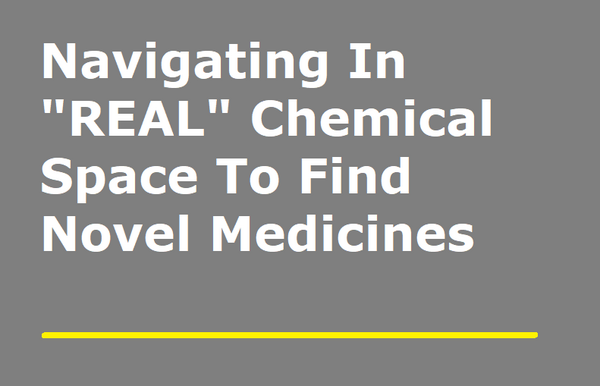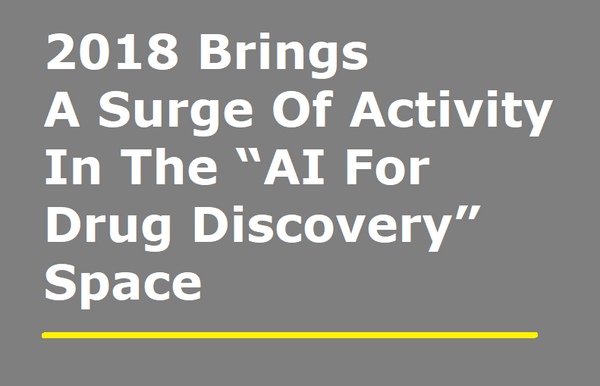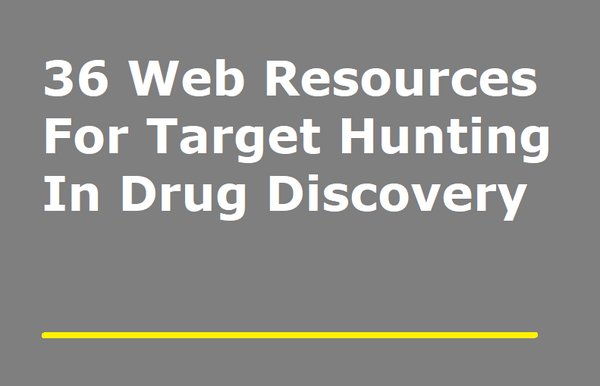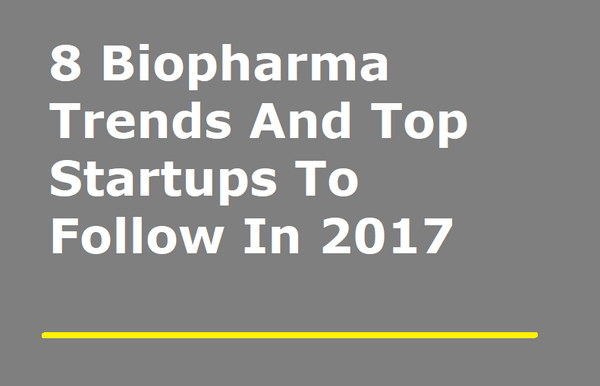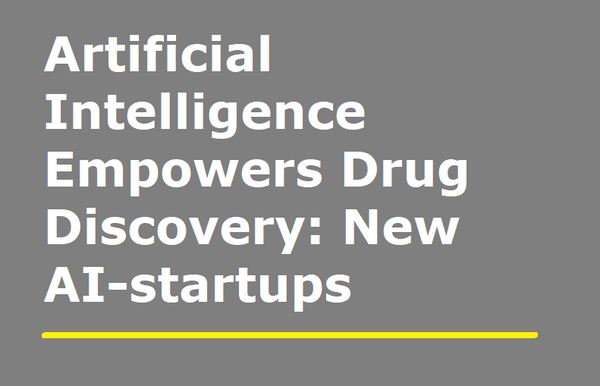21 Life Science Marketplaces to Try in 2024
(Last Update: December 2024, by adding Lab Spend, Labviva and more)
A life sciences marketplace is an online platform that operates with a "many-to-many" business logic, hosting multiple suppliers and buyers interacting via various e-commerce tools available as part of the website's functionality.
Why are marketplaces valuable? Buyers can quickly compare and select superior offerings without having to research multiple websites or browse online for price comparisons or product specifications. Furthermore, marketplaces bring increased transparency, trust, and standardization to the procurement process.
On the other hand, suppliers can access a more targeted audience directed to their product or service pages. In fact, a well-represented company profile with a detailed catalog can be a powerful lead magnet for potential customers.

Image credit: Andrey Suslov iStock
Both buyers and suppliers greatly benefit when a marketplace takes on operational activities, such as bidding, quoting, invoicing, consulting, and basic customer support.
Typically, marketplaces offer catalog search capabilities, options to request quotes and place orders online, as well as payment options to complete a purchase. Sometimes, marketplaces utilize various rating or verification algorithms to ensure website users—suppliers and buyers alike—are reliable business partners.
Some modern marketplaces also include more sophisticated components, like community-building capabilities, artificial intelligence-based recommendation systems, or advanced integration APIs to connect with other types of software, such as spend-management systems.
Life science marketplaces
The pharmaceutical and biotech B2B sector has been slow to adopt advanced e-commerce workflows compared to other consumer industries, struggling with an outdated supply chain.
However, e-commerce is currently a growing trend in the pharmaceutical and biotech industries, with several notable marketplaces available across various product and service categories.
RELATED: "How E-commerce Reshapes Pharmaceutical R&D Market"
It's crucial to understand that the inherently more complex nature of scientific products, compared to everyday items, necessitates more advanced tools and a more sophisticated user experience in life sciences marketplaces. Scientists require more information than what's readily available on product packaging; nomenclature often varies between manufacturers, making it difficult to compare products directly, and selecting the wrong product can lead to flawed data and poor or non-reproducible results.
Let's explore some of the life sciences marketplaces in pharma and biotech, and how they address the industry's unique challenges. These marketplaces have been illustratively categorized by specialization:
- Life sciences marketplaces for various research products (consumables, reagents, research materials)
- Life sciences product search & comparison engines
- Life sciences R&D outsourcing services
- Life sciences marketplaces for R&D crowdsourcing (open innovation challenges)
- Life sciences marketplaces for hiring talent
- Biospecimens procurement and health data
- Fine chemicals procurement (building blocks, screening compounds, intermediates)
Life Sciences Marketplaces for Various Research Products (consumables, reagents, research materials)

Zageno
Established in 2015, Zageno is a cutting-edge life sciences marketplace that streamlines biotechnological online shopping and life science procurement, claiming to save scientists a full week of time each year. With a database comprising over 20 million product items from more than 3,500 suppliers, Zageno utilizes advanced technologies like artificial intelligence (AI) for product information aggregation, creating seamless workflows.
Drawing from millions of scientific publications, Zageno has developed a unique "Zageno Scientific Score" metric to compare research materials and select the best solution for a given study. The life sciences marketplace offers a wide variety of supplies, ranging from lab consumables and equipment to antibodies, cell cultures, molecules, and kits.
Zageno provides an enhanced shopping experience, complete with end-to-end customer care and responsibility for all necessary steps – from a user-friendly product approval mechanism for lab heads and administrators to invoicing, payment, and order delivery. For researchers seeking to optimize their spending on research materials, Zageno has created a spending analytics dashboard that promotes high levels of cost-efficiency.
The company has raised a total of $88M through a series of venture capital rounds. Over six years, Zageno has expanded its network globally, primarily focusing on the US, UK, and Germany.
In November 2023, ZAGENO was included in the ProcureTech100 list, which identifies the top 100 procurement technology companies worldwide.
Quartzy
California-based company Quartzy is not only a marketplace but also a lab inventory management system. Quartzy software allows customers to transfer previous inventory data directly to the system, keep track of all research materials with a broad range of characteristics, submit requests to lab managers for ordering, compare products from different vendors and monitor delivery. Vendors that collaborate with Quartzy include MilliporeSigma, New England BioLabs, Qiagen, Bio-Techne etc. For spending analysis and control, Quartzy offers integration with accounting software.
Buyers do not have to pay for the service, yet sellers pay for a place on the marketplace. The company’s clients include world top research institutes like Stanford, Oxford, Duke, Harvard Medical School, and industrial leaders like Kite Pharma, Abbvie and Beyond Meat. Quartzy’s financial support from investors equals $27.2 million and was received in 5 funding rounds.
In 2023, Quartzy introduced a new subscription model to support its "connected lab" vision, enhancing integration with tools like Slack, Quickbooks, NetSuite, and Google Sheets. This model aims to improve lab operations by automating tasks and centralizing inventory management, request processing, and supply shopping from over 1800 brands.
The company was founded in 2009 by Jayant Kulkarni and Adam Regelmann.
Biohippo
Biohippo is a dedicated life sciences marketplace for biotechnological products, catering to researchers and industry professionals in the biomedical sector. By bringing together reliable manufacturers and suppliers on their platform and standardizing product data, Biohippo simplifies the life science procurement process for research. The extensive catalog of biological resources includes primary & secondary antibodies, enzymes and their inhibitors/activators, proteins and peptides, assay kits, cell culture reagents, viruses, vectors, biochemicals, and lab equipment. In collaboration with their partners, Synbio Technologies and Brain VTA, Biohippo also offers customized DNA, antibody, and protein synthesis services.
Established in 2017 and based in Rockville, Maryland, Biohippo operates with a relatively small team of up to 10 employees. Despite its size, the marketplace's user-friendly interface and comprehensive list of research products have the potential to drive the company's steady growth.
In 2024, Biohippo announced partnerships with LipExoGen and ProFoldin to enhance its biotech research tools and expand its life sciences offerings. Additionally, Biohippo continued its collaboration with Cytion to streamline U.S. distribution and reduce lead times for cell line deliveries.
Prendio
Prendio is a comprehensive procurement-to-pay solution designed for biotech research institutions and companies in the life sciences field. The platform integrates all essential e-shopping steps for life science projects, ranging from processing requests and identifying the best supplier with optimal pricing to ensuring secure transactions, invoicing, and delivery. Established in 2015 by experts with over 50 years of experience in biotechnological procurement, Prendio is a startup based in the Greater Boston Area.
Clients using Prendio form a close-knit community, and when someone orders specific products through the Prendio software, they are automatically added to a shared catalog visible to all users. Since its inception in 2015, the company asserts that it has saved its clients $28 million and 197,000 hours.
In January 2024, Eric Meizlish was appointed CEO of Prendio and BioProcure, bringing experience from co-founding Lumere and serving as its President and Chief Strategy Officer until its acquisition by GHX. In February 2024, Prendio introduced new features, including a Scan Upload Email for automatic invoice and packing slip uploads, reducing the need for manual entries
BenchSci
BenchSci is a Toronto-based company with a focus on developing technology with artificial intelligence which can give researchers specific information on their intended experiment, thus reducing time spent on researching and planning materials. The company has two platforms: the AI-Assisted Reagent Selection and the AI-Assisted Antibody Selection. The former platform has the capability of selecting the reagents for an experiment in as little as thirty seconds, whereas traditional research would take weeks. The latter platform aids researchers with finding appropriate products for the experiments using a database of more than 10 million scientific publications. The companies platform includes 14 million scientific publications as well as vendor catalog data for more than 64.6 million products from 400 vendors, and validations from third-party organizations including The Human Protein Atlas, EuroMAbNet, and Encode.
BenchSci was founded in 2015 by Tom Leung, David Q Chen, Elvis Wianda, and Liran Belenzon.
Lab Spend
Lab Spend, founded in 2016 and headquartered in the Greater Boston Area, offers a lab management platform combining analytics, biotechnology, and machine learning to enhance operational efficiency in research environments. Designed for both academia and industry, Lab Spend provides tools for inventory tracking, spending analytics, and procurement optimization.
With features like customizable dashboards, SDS management, and advanced price search, the platform helps users reduce costs and streamline processes. Trusted by thousands of researchers, Lab Spend has facilitated over $2 million in collective savings without charging subscription fees, aligning its revenue model with user savings through partnerships with suppliers such as MilliporeSigma and VWR.
Comparison engines
This category includes services, which are not "classical" marketplaces per se, but they gather and structure information about products and services, in some cases using artificial intelligence (AI)-based data scraping and mining, serving the purpose of classical marketplaces: effectively matching buyers and sellers.

Bioz (AI-driven search engine)
Bioz is a search engine for life science researchers with AI-driven data-mining, automatic dynamic categorization, objective data-driven ratings, and detailed recommendation workflows. The Bioz search engine guides life scientists towards optimal reagents (biologicals and chemicals) and tools (instruments and equipment) for them to use in their research experiments. All Bioz experimentation recommendations are based on objective scientific data that is mined and structured from over 33 million scientific journal publications (PubMed). Bioz has also developed a proprietary dynamic rating system, called Bioz Stars, which guides researchers towards optimal products to purchase and use in their specific experimentation assays and techniques. Bioz provides these insights to scientists in two key formats: first, via its Bioz platform which showcases over 300 million products from 50,000 vendors; and second, via product supplier websites with its proprietary solution — advanced data-widgets called Bioz Badges. These two innovative Bioz solutions have taken off rapidly, as Bioz has already attracted over 7 million users from 196 countries including all of the top biopharma companies and academic institutions.
In 2024, Bioz partnered with Teledyne LABS, EpiCypher, Innovative Research, and Randox Laboratories to integrate Bioz Badges onto their product pages, displaying real-time citation data and enhancing evidence-based decision-making for researchers using these companies' products.
Biocompare
For over 20 years Biocompare has been the leading global resource used by more than 2.5 million life scientists to learn, decide upon, and stay informed about the products and services that fuel their research and discovery. Biocompare's mission, to provide free, time saving services to life science researchers, is accomplished by providing scientists access to data and information that help them make better purchasing decisions. Biocompare resources include the world’s most comprehensive product directory that contains over 7 million products from more than 400 suppliers, specialized search and product comparison tools to help them better pinpoint products of interest, articles that help them keep abreast of the latest technology, product reviews, buying guides and tips, product usage best practices, videos that help them understand the technology they use, and webinars that provide real world applications and case studies from their peers.
Biocompare also employs a sophisticated algorithm that mines the scientific literature to find citations for the products listed in their directory. Enhancing the product directory with the citation database provides researchers with information about how the products have been used previously, giving them insight into finding the right tool for their experiments.
Biocompare’s content strategy is designed and executed to ensure that Biocompare remains a trusted and comprehensive resource for scientists. Biocompare continually strives to serve the life science community by providing new and improved online services that facilitate product discovery and technology education.
In April, Biocompare launched the beta of LifeSciAI, a generative AI tool to assist scientists with product searches, experiment planning, and troubleshooting.
Cromatic
Cromatic, headquartered in the San Francisco Bay Area, was established in April 2022. As a for-profit company, Cromatic is actively engaged in developing software solutions aimed at assisting life-sciences companies in outsourcing their research and development processes. In November 2023, the company secured $5.3 million in an oversubscribed seed funding round led by LifeX Ventures and AgFunder, with participation from investors like Work Life Ventures, Not Boring Capital, FJ Labs, and Lux Capital.
The company's platform serves as a conduit between users and a network of Contract Research Organizations (CROs). These CROs are vetted and offer a broad spectrum of services, including but not limited to DNA sequencing and GLP large animal studies. Cromatic's system facilitates a swift matching process, often under 24 hours, and covers various stages of research, from non-clinical to clinical phases
Cromatic recently unveiled the AI-powered Sourcerer matchmaker tool, which enables users to identify relevant CROs at the click of a button. Users can search a cloud-based global database curated by Cromatic or input their RFPs (request for proposals) to pull up a list of relevant vendors, who can either be contacted directly or engaged with on Cromatic’s platform via a ‘white glove’ service. There is also a free version of Sourcerer, which allows users to perform basic vendor searches.
Labviva
Labviva, founded in 2017 by Siamak Baharloo and Nicholas Rioux in Boston, Massachusetts, offers a digital purchasing platform designed for life sciences procurement. Labviva operates as an enterprise gateway marketplace (EGM), integrating with systems like SAP Ariba, JAGGAER, Oracle Procurement Cloud, Microsoft Dynamics 365, and Coupa, allowing users to maintain their existing processes.
Users can source lab supplies, reagents, consumables, and equipment from any supplier within Labviva’s network without individual vendor onboarding. The platform includes search and comparison functionalities designed to provide a consumer-like shopping experience, aggregating over 15 million products from 18,000 manufacturers while adhering to procurement rules.
One aspect of their platform involves mapping products into scientific applications, techniques, and protocols, and generating citation index scores based on peer-reviewed references. This feature aims to assist researchers in making purchasing decisions by showing how often products are cited in scientific literature.
In 2020, Labviva raised over $2 million in pre-seed funding. This was followed by an $8 million capital raise in June 2021. In 2023, the company secured $20 million in Series A funding led by Biospring Partners, bringing its total funding to $30 million. The funding is being used to expand Labviva's team and meet the growing demand from global researchers, while partnerships with major biotech firms and institutions are intended to streamline procurement processes and expedite research timelines.
Life Sciences R&D Outsourcing Services
Science Exchange
Science Exchange powers R&D outsourcing for the world’s top life sciences companies. Their marketplace gives scientists access to the innovation and research they need and their platform fully automates R&D outsourcing from source to pay.
Under one contract with Science Exchange, scientists can work instantly with 3,500+ scientific suppliers, offering 7,000 service categories, without the usual delays caused by contract negotiations and supplier onboarding. They boost productivity with a secure, easy-to-use interface that simplifies supplier collaboration, project management and automates payment processing.
Customers like Merck, Gilead, BMS, Vertex, AbbVie, Astellas and dozens of leading biotechs trust Science Exchange to transform their R&D outsourcing, accelerating their discoveries and saving millions of dollars.
In 2024, Science Exchange launched a B2B marketplace to simplify procurement for research organizations, set on streamlining purchasing and supplier management.
Scientist.com (formerly Assay Depot)
Scientist.com is artificial intelligence (AI)-powered network of public and private life sciences e-commerce marketplaces that connects buyers and suppliers of research services. The mission of the company is to remove barriers for innovations and speed up medical research. The marketplace provides powerful tools for R&D outsourcing of all sorts: More than 10 M products are available at the marketplace, as well as thousands of services and more than 40 thousands providers. Once logged in to the marketplace, the user gets operational support from 24/7 research Concierge® service, and all the necessary administrative and legal contracts in place for the seamless business interaction between users and vendors.
In 2021, the company developed the Disease Model Finder™ tool that allows to compare models of different diseases. The Disease Model Finder™ is based on the COMPLi® proprietary platform and is empowered by big data. Other solutions include Biotech Investors tools, Compliance Solutions, Contract research Map, Lab Auditing Services and Supplier only Payments.
The company was founded in 2007 by Kevin Lustig, Chris Petersen, and Andrew Martin with the first online marketplace launched in 2008.
Genohub
Genohub is Texas-based niche life sciences marketplace that was created in 2013 specifically for researchers in need of next-gen sequencing services. It provides a flexible way of procuring and managing sequencing services, bioinformatics services, and optical genome mapping services. The website allows vendors to list not only regular services, but also one-time offers with flexible pricing and turnaround times to get runs moving faster. The marketplace supports automated matching and pricing functionality to streamline the operational part of work for both vendors and buyers. Researchers can search for providers and services using a variety of metrics. Complete e-commerce functionality is supported with the ability of ordering, payment and data delivery.
In February 2024, Genohub showcased the capabilities of their platform PacBio Revio, for high-quality long-read sequencing.
Labtoo
Labtoo was founded in Paris in 2017 and now it positions itself as "The first contract research service for both biospecimen and experimental outsourcing". Labtoo marketplace gives R&D project leaders the possibility to connect with the best experts and laboratories. The spectrum of services searchable on the platform cover genomics, proteomics and analytics, cell lines and samples, and consultancy in scientific, therapeutic, or regulatory questions. Laboratories and experts delivering expertise have an option to get revenue or generate a credit to use it towards ordering expertise for its own projects.
Currently Labtoo’s network spans more than 500 service providers in France and Europe.
R&D Crowdsourcing (open innovation challenges)
Innocentive (Was acquired by Wazoku Crowd)
Innocentive was an open innovation marketplace connecting companies — seekers — with a wide network of scientific or engineering professionals — solvers. Seekers can publish offers to solve a particular research problem for a fixed cash award — so-called “open innovation challenges”, while solvers can provide their offers to solve the problem. The platform has all the legal documents in place to make sure any intellectual property or confidentiality matters are in check.
The solvers' network counted more than 380,000 specialists from nearly 200 countries. Among the seekers who placed challenges on Innoceptive are Shell, P&G and even US Navy.
The company was founded in 2001 in Waltham, MA, with a major seed contribution from Eli Lilly and Company, and later in 2005, the Innocentive was spun out of Eli Lilly. Innocentive has a representative office in London, UK. To date, the project has raised $30.3M in 4 rounds of investment. In 2020, the company was acquired by another enterprise innovation platform Wazoku. This acquisition has combined InnoCentive's network of nearly 500,000 problem solvers with Wazoku’s innovation management platform, set on creating a comprehensive solution for global innovation challenges
This year, Wazoku has introduced several new features, all under its "Total Innovation" strategy to enhance collaboration and innovation through AI and crowd intelligence.
Life Sciences Marketplaces for Hiring Talent
Clora
Clora is a classic two-sided marketplace matching life science consultants and biopharmaceutical organizations that need talent for realizing research projects. This Boston-based startup, founded in 2016, already raised $6 million seed round from Spark Capital and a number of co-investors. Clora has aquired Legit, an AI-powered expert network for life sciences.
When a customer posts a project with its highly specialized research requirements, Clora’s proprietary technology selects up to 3 candidates meeting the requirements, providing a 100% success rate in matching within days. The website categorizes talent into 29 different specialties, ranging from research and production to legal, accounting, safety/pharmacovigilance. Essentially, this marketplace transforms a highly laborious biopharma hiring process into an algorithmic and well-managed workflow.
Legit (Acquired by Clora in 2021)
Legit was a start-up from MIT founded by Jacob Rosen, Anthony Bucci, and Matthew Osman in 2018. In the same year, Legit launched an AI-enabled collaboration platform for life science businesses, where customers can find and connect with experts in their field fast and effortlessly.
Legit product focuses on improving efficiency across drug design, medical device development, and external alliances. It has raised $2.6 million for its platform in 2018 and its software is being used by big pharma companies like Amgen, Bayer and Johnson & Johnson.
The company claims that its platform connects 2 million experts in the life science industry, essentially being a smart marketplace for talent sourcing. Moreover, Legit helps in searching not only external but internal profiles as well, enabling clients to find experts inside their companies. Additionally, Legit handles scheduling, compliance, payments, transcripts, legal processes, and provides the security of data. Clients can upload the entire documents to the platform in order to find matches with leading experts and publications. Then the proprietary natural language processing algorithms will decompose part of documents into constituent topics, facilitating the exploration of the relevant ideas.
Life Sciences Marketplaces for Biospecimens and Research Data
iSpecimen
The iSpecimen Marketplace® advances life sciences by streamlining biospecimen procurement.
iSpecimen is a niche marketplace for human biospecimens, where researchers can get the specimens they require for the projects from a category of patients they need. iSpecimen marketplace streamlines and centralizes the process of connecting healthcare organizations that have access to patients and specimens with researchers in need. Owing to proprietary cloud-based technology, the marketplace users can search for specimens and patients within a federated network of partners, including hospitals, biobanks, blood centers, labs, and other healthcare organizations. The marketplace and its internal workflow are designed and regulated to meet strict industry standards and comply with sensitive data transfer regulations.
Founded in 2009 and based in Lexington, MA, the company went on IPO in summer 2021, raising more than $20M.
In 2024, iSpecimen reported nearly 7,564 registered users on its marketplace, a 9% increase from the previous year, with over 600 unique customer organizations purchasing from the platform, up from 534 in Q1 2023. Additionally, iSpecimen announced a strategic partnership with TriMetis Life Sciences to enhance tissue-based research.
Longenesis
Longenesis is a SaaS company based in Latvia and Hong Kong, co-founded by Insilico Medicine. It focuses on developing legitimate ways to promote collaboration between biomedical institutions, patient organizations, and paying research partners by identifying biomedical data from anonymized metadata files, further onboarding patient or population cohorts in studies, and engaging them in new research initiatives. This is achieved through the implementation of a universal toolkit, composed of three interrelated products. Longenesis Curator is an ecosystem where clinical institutions and patient organizations are connected in consortiums with potential collaboration partners and sponsors to initiate further collaboration. Longenesis Themis is an in-house-built SaaS digital patient consent management tool that enrolls patients into research activities by getting auditable and transferable permissions. Longenesis Engage is a digital patient-centric tool to engage participants in prospective studies and manage these studies remotely.
The company raised $1.2M in 2 rounds of investment. In 2020 Longenesis started a collaboration with Deep Longevity to give hospitals and clinics access to Deep Longevity’s aging clocks.
In 2021, Longenesis partnered with Medtronic to launch a patient-centric engagement mechanism aimed at improving patient involvement in research and advocacy, using digital tools to enhance recruitment, engagement, and data management. That same year, Longenesis secured €1 million in a late seed funding round led by Rustam Gilfanov and other investors, to accelerate the deployment of its core products and expand its market presence.
Fine Chemicals (building blocks, screening compounds, intermediates)

Chemspace
Chemspace is an open platform for searching and ordering small molecules: commodity reagents, building blocks, and screening compounds, which are demanded in early-stage drug discovery research and medicinal chemistry programs. Chemspace is the largest online catalog of small molecules and biologics in the world, currently hosting more than 130 suppliers located worldwide and an aggregated catalog of over 4.4 billion unique small molecule structures and over 500 thousand biologics (antibodies, peptides and proteins, and biologics kits). The main focus of this platform is to provide medicinal and organic chemists with comprehensive coverage of previously unchartered chemical space and stimulate new synthetic ideas.
Chemspace has a chemical structure drawing tool (MarvinJS) and a sophisticated search module with different advanced filtering options. It is possible to surf the catalog by chemical structure (exact match, substructure, and similarity), CAS number, MFCD numbers, IUPAC name, catalog identifiers, and InChI keys. The Chemspace catalog is available via punchout integration with a client ERP and via an API with a client application (i.e. KNIME, DataWarrior).
The company was founded in 2015 and has offices located in Europe, in the United States and in Ukraine.
eMolecules
eMolecules is one of the oldest marketplaces for life sciences industry, mainly, drug discovery products — it has three international offices in California, Boston and London. Its catalog includes chemical building blocks and screening compounds, as well as an extensive list of antibodies for CRO corporations, pharmaceutical, biotechnological and academic organizations. Overall, more than 8 million fine chemicals can be purchased on the marketplace from reliable suppliers worldwide. For special requests, the company suggests custom synthesis chemistry & custom libraries in qualities from mg to kg and any desired purity.
To streamline procurement workflows, eMolecules provides business intelligence data and integrated e-commerce software, in addition to private websites for purchasing that can be fully customized. Such websites are integrated with the eMolecule database and updated systematically but show only chosen suppliers in a preferred ranking, with an adapted colour scheme of the website and a logo of a client company. The chemical search tool on emolecules.com allows drawing, text search by formula, CAS number, IUPAC nomenclature or SMILES notation.
In March 2021 eMolecules was purchased by Avista Capital Partners at $250 million valuation.
In May 2023, eMolecules acquired Specs Compound Handling B.V., enhancing its global footprint and expanding capabilities in compound reformatting and inventory management. Founded in 1987 and based in the Netherlands, Specs specializes in storing and handling research compounds for the life sciences industry.
Molport
For more than 15 years Molport has been operating on the European market of fine chemicals. The marketplace offers full-cycle screening compound sourcing services: product selection from 60+ global suppliers and a database of almost 8 million listings, reformatting of samples, logistics and even testing and quality control. In addition, it provides integrations with cheminformatics software from Schrodinger, MOE and StarDrop. For pharmaceutical chemistry and custom synthesis purposes, Molport has a range of building blocks too.
Advanced text filters and MarvinJS chemical structure search ensure easy navigation through Molport catalogues. As for procurement management, Molport provides consolidation services from different vendors into a single shipment, as well as customs clearance for ordering from abroad. The platform has technical capabilities for automated workflows setup through API and KNIME nodes.
Molport’s office with around 30 workers is based in Riga, Latvia. Since 2013 in 3 funding rounds the company received $1.34 million from investors like Imprimatur Capital Fund Management and FlyCap.
Topics: Marketing & E-commerce

